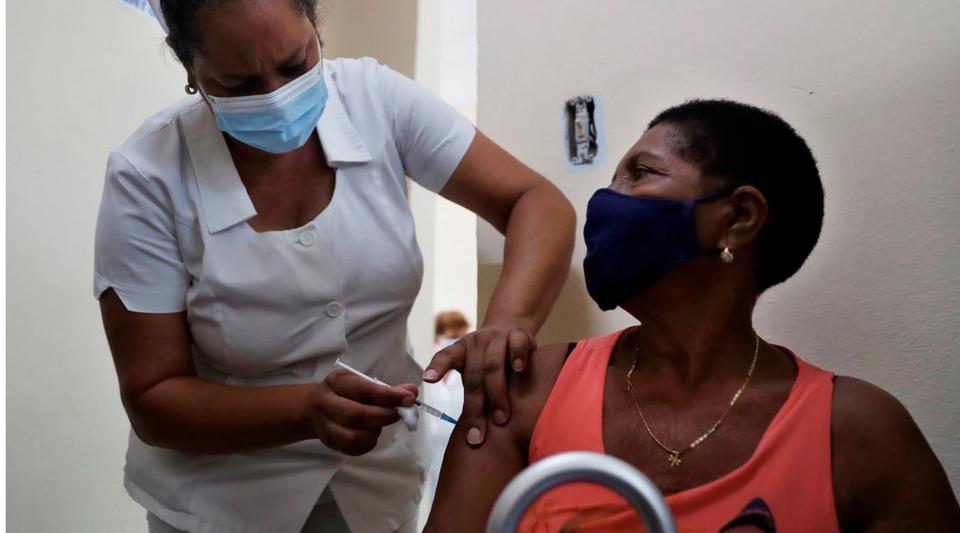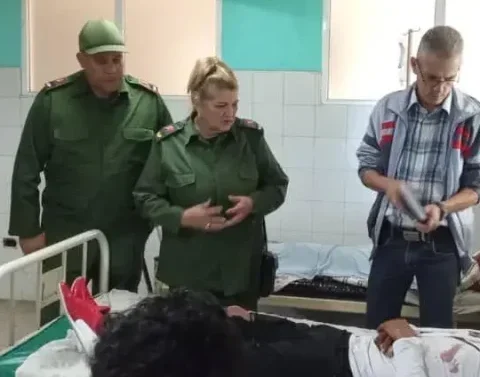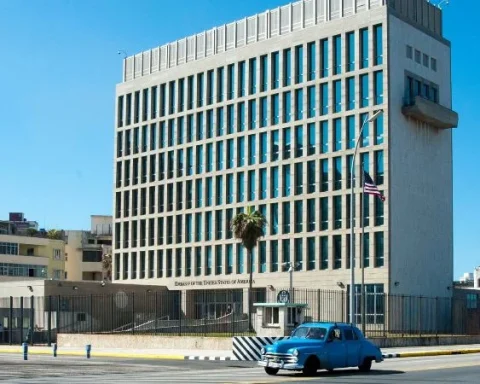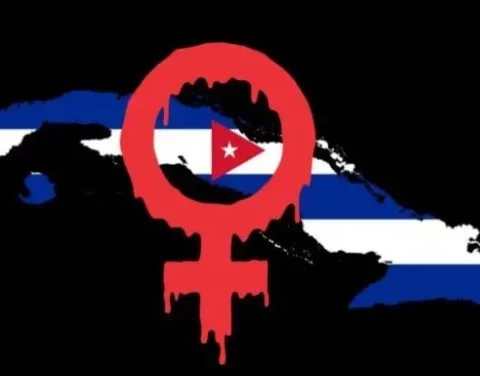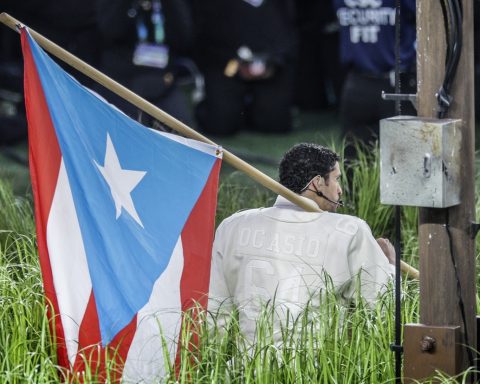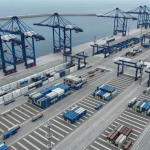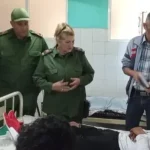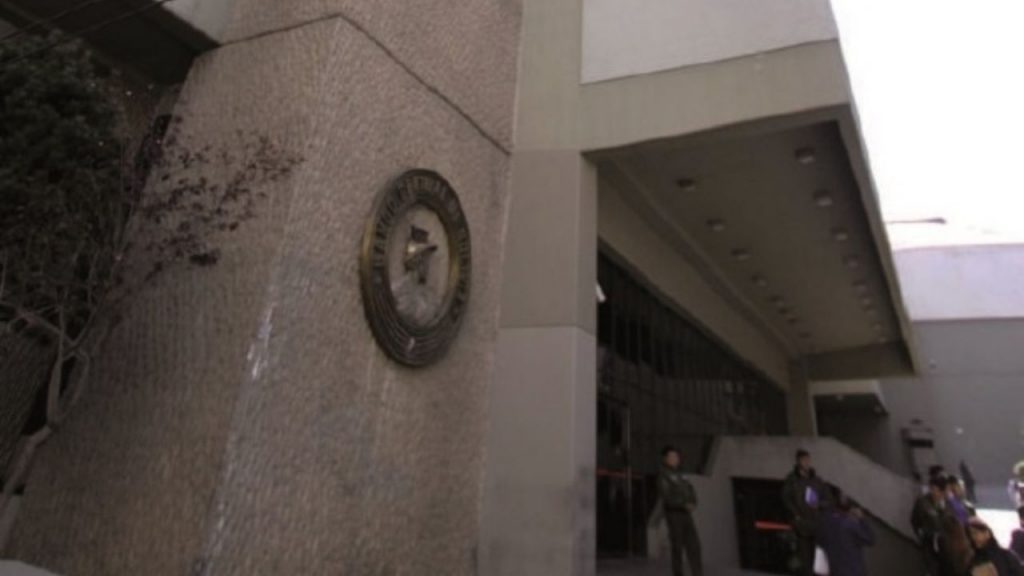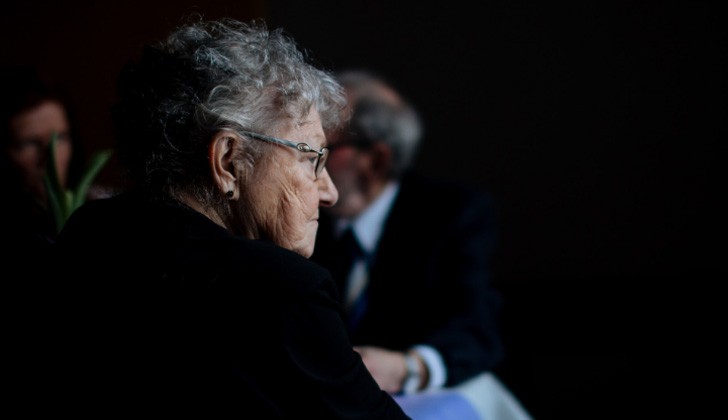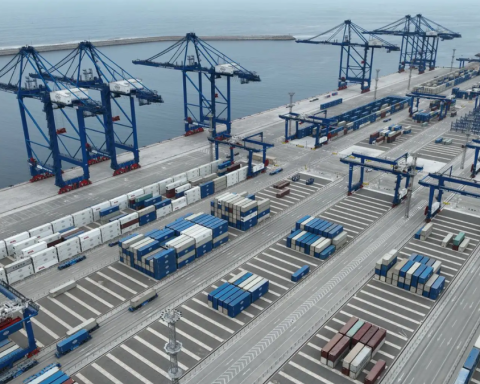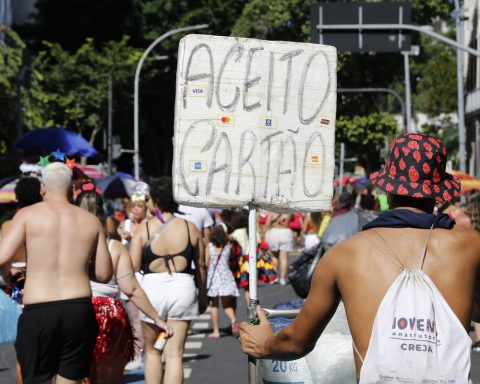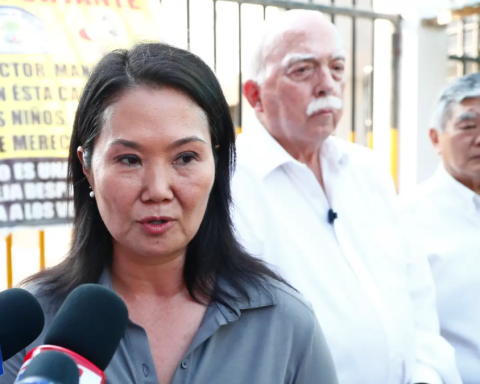“Cuban vaccines will be put to the test starting on the 15th, when the borders open and the Russians arrive again,” says a commentator under a post by Dr. Almicar Pérez Riverol in which the doctor points out that Soberana 02 and Abdala do not explain by themselves the regression of the pandemic, as the Cuban authorities maintain, but the immunity acquired by those infected with covid-19.
In the midst of official figures of infections and deaths that are going down and are perceived in the street, the Cuban virologist based in Brazil argues that it is so incorrect to say that the vaccines of national invoice do not serve as ignoring the effect that has happened. the illness.
“Several countries that went through recent (and huge) waves of cases, caused by the Delta variant, began the sustained decline when vaccination coverage was still low. This is because here is also the effect of dangerous immunity from infection,” he comments with a graph in which he has selected for comparison countries of very different latitudes such as Uruguay, India, Fiji and Botswana.
The Cuban virologist based in Brazil argues that it is so incorrect to say that nationally manufactured vaccines do not serve as ignoring the effect of having passed the disease
According to the specialist, vaccination in Cuba progressed at the same time as one of the largest incidence waves in the world. “Thus, this decrease is the result of vaccination added to the costly effect of immunity due to infection, evidenced in all countries that suffered outbreaks caused by the Delta and which, yes, would have been much higher without the arrival of vaccines” , aim.
In a new message, Pérez Riverol draws attention to the danger of not getting vaccinated and for this he focuses on Europe and its two faces. While in the west, with very high vaccination rates, infections are high but do not cause increases in hospitalizations or deaths, in the east, with a large number of unimmunized population, as infections rise, income and deaths increase.
Again, the country where the situation reaches a peak is Russia, which this Monday has once again reported a record of infections, exceeding 40,000 officials. In total, the country closes a black month, with 983,425 cases of coronavirus detected, almost a million. Despite the fact that its vaccine, Sputnik V, was the first to be inoculated, the distrust that citizens feel towards it has led to very low vaccination rates and only 47% of the population is immunized. What is dangerous, as seen in Pérez Riverol’s graphs, is not so much the infections, but the mortality caused by this lack of vaccination.
In Moscow alone, during the last week there were about 10,000 hospitalizations of people in serious condition. This Sunday 1,155 people died of coronavirus in the country, which brings the total since the start of the pandemic to 239,693 fatalities, although official statistics on excess deaths double this figure.
This Sunday 1,155 people died of coronavirus in the country, which brings the total since the start of the pandemic to 239,693 fatalities
In addition, 96 people died from the disease overnight in the capital, another 85 in St. Petersburg and 47 in the Moscow region. The data have made the country the place with the highest mortality in the world precisely on a day when it was known that the global death toll from covid-19 has exceeded 5 million. The United States, Brazil and India appear as the worst hit countries, according to the independent tally by Johns Hopkins University.
In the midst of this situation, many are the Cubans who fear the arrival of the Russians, since, although vaccination is advancing on the island in a massive way, those infected may still require medical attention in a country where the means are not the same as In Western Europe or the United States, on the contrary, the national health system is exhausted by recent saturation and shortages exacerbated by the worsening economic crisis.
“Things in Cuba can get ugly again because unlike Western Europe, the Cuban health system is broken. And false confidence, the undervaluation of risk and the undervaluation of the Cuban can be fatal,” says a user to Pérez Riverol .
Meanwhile, Christmas is approaching and the World Health Organization (WHO) still does not report on the approval of Cuban vaccines. One of the pending requirements is the publication of clinical trials in prestigious journals and, for now, it is known that there is a study published in The Lancet which will be available in its open edition this January, but it is related to Soberana Plus.
It is unknown, at the moment, that there is any other advance and this generates regret in many Cubans living on both sides of the Florida Straits who are watching a new end of the year parties with the separated family.
The US will allow international travelers to enter as of November 8, but for this they must be vaccinated with one of the approved formulas
The US will allow international travelers to enter as of November 8, but for this they must be vaccinated with one of the formulas approved by the national regulator (FDA) or on the WHO emergency use list, although there are some exceptions .
In addition, even being vaccinated, foreigners must carry a PCR test carried out in the last 72 hours that proves their negative in covid-19. For those who are not vaccinated, a PCR done before boarding is necessary, a requirement that had given some Cubans hope, but is only for U.S. citizens, lawful permanent residents, or the small number of excepted unvaccinated foreign nationals.
“That saddens me a lot. Vaccination and control are good, but what is the fault of citizens who do not have access to vaccines recognized by the WHO? – question a Cuban to the Washington Embassy in Havana. “My mother is 80 years old, she is Cuban and has a tourist visa for 5 years that expires in August and two years ago due to the pandemic she has not been able to enjoy it. Sadly, she will never be able to come to enjoy this stay again.”
________________________
Collaborate with our work:
The team of 14ymedio He is committed to doing serious journalism that reflects the reality of deep Cuba. Thank you for joining us on this long road. We invite you to continue supporting us, but this time becoming a member of our journal. Together we can continue transforming journalism in Cuba.
